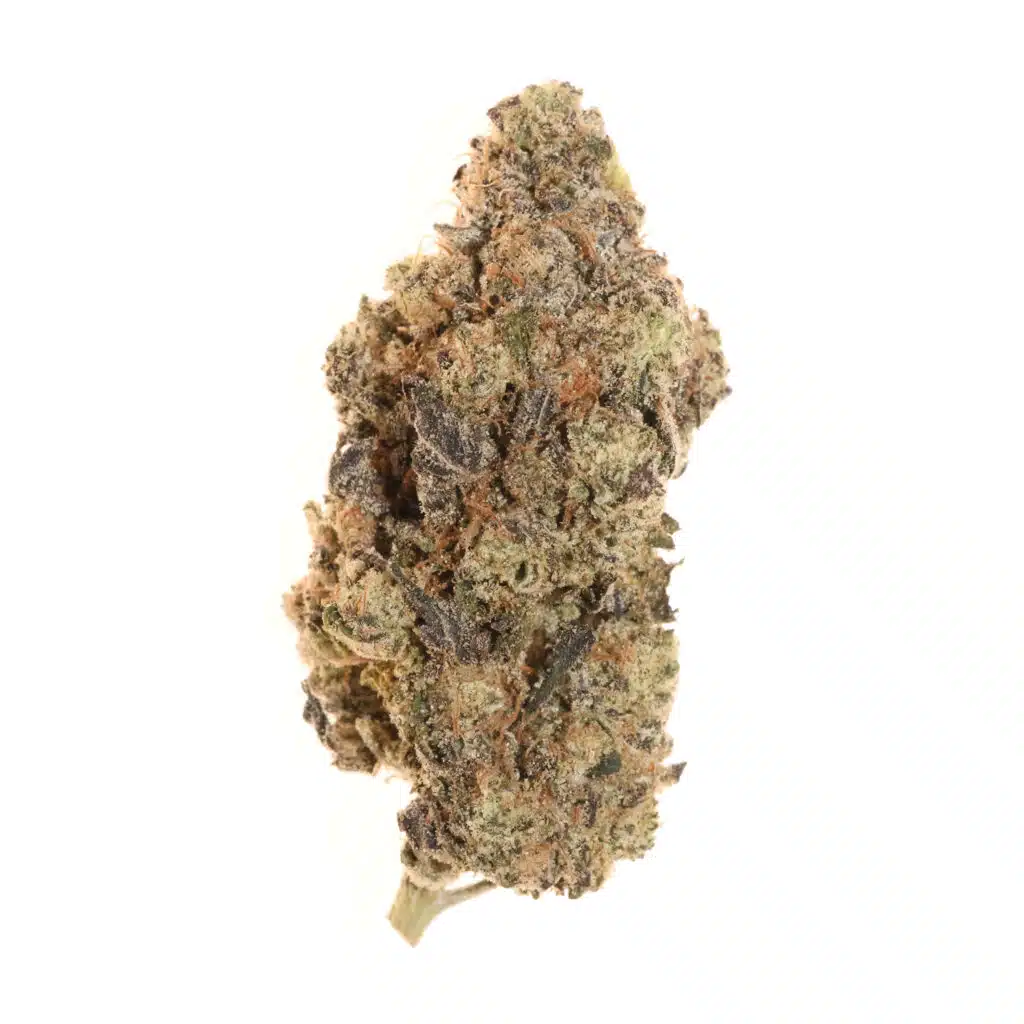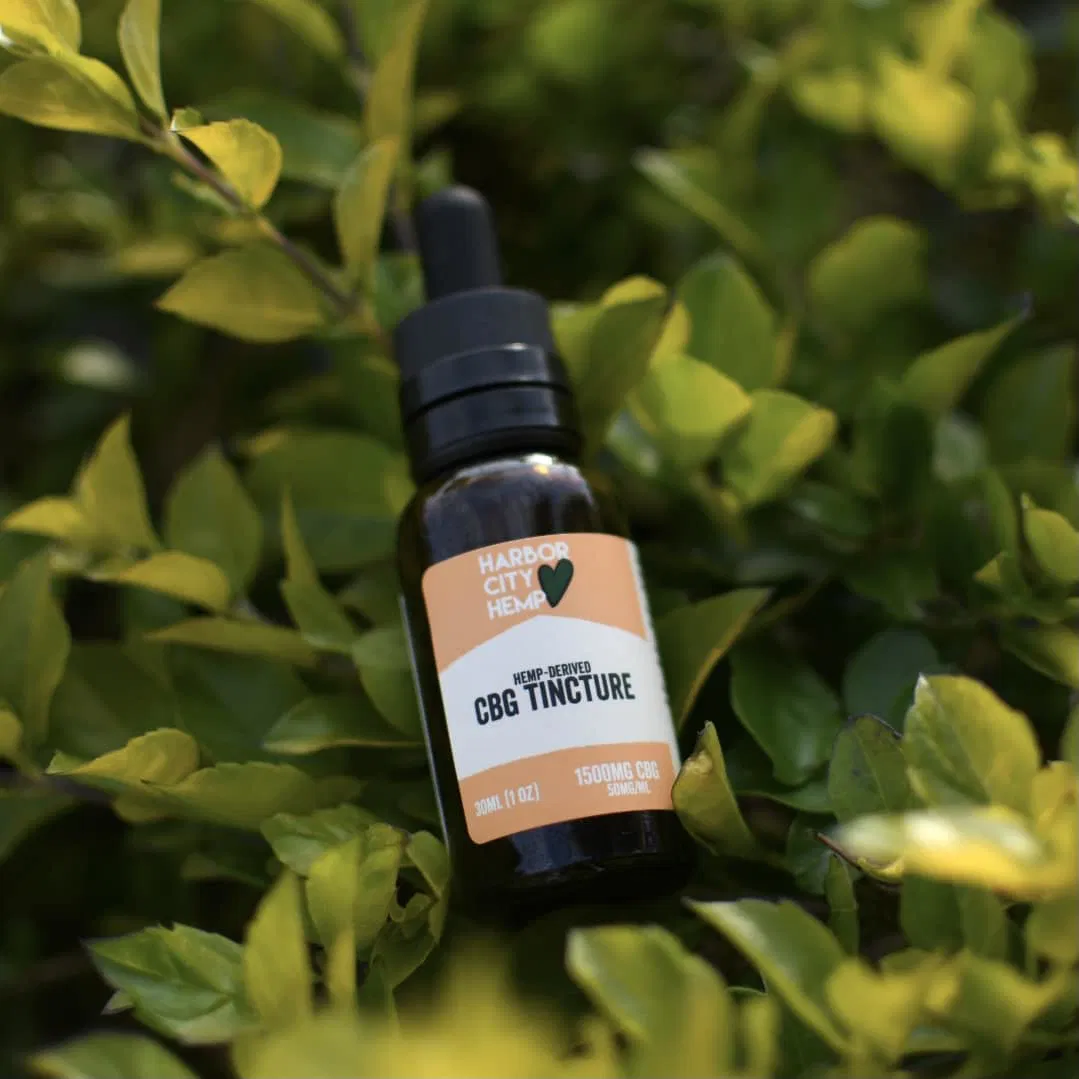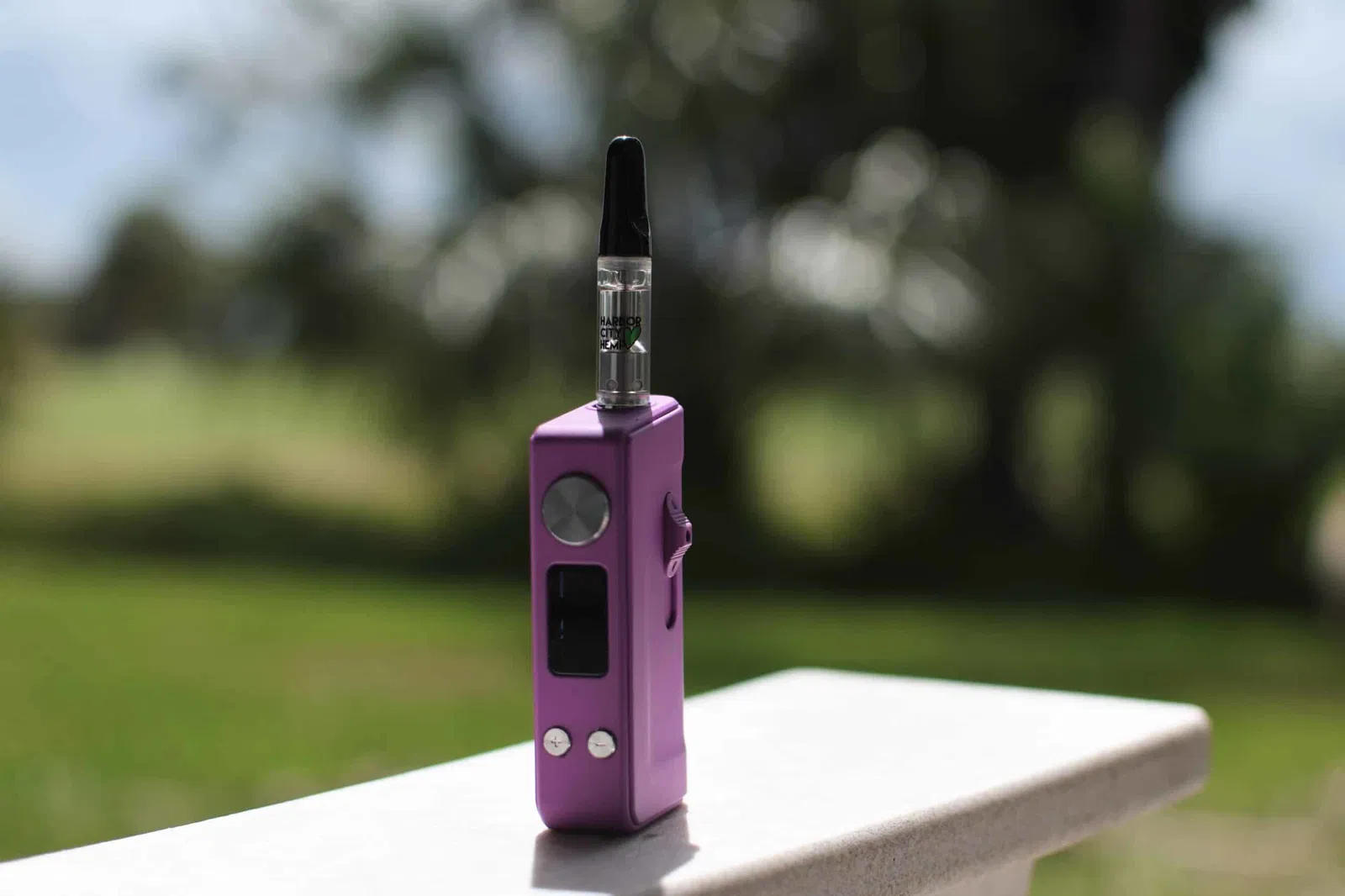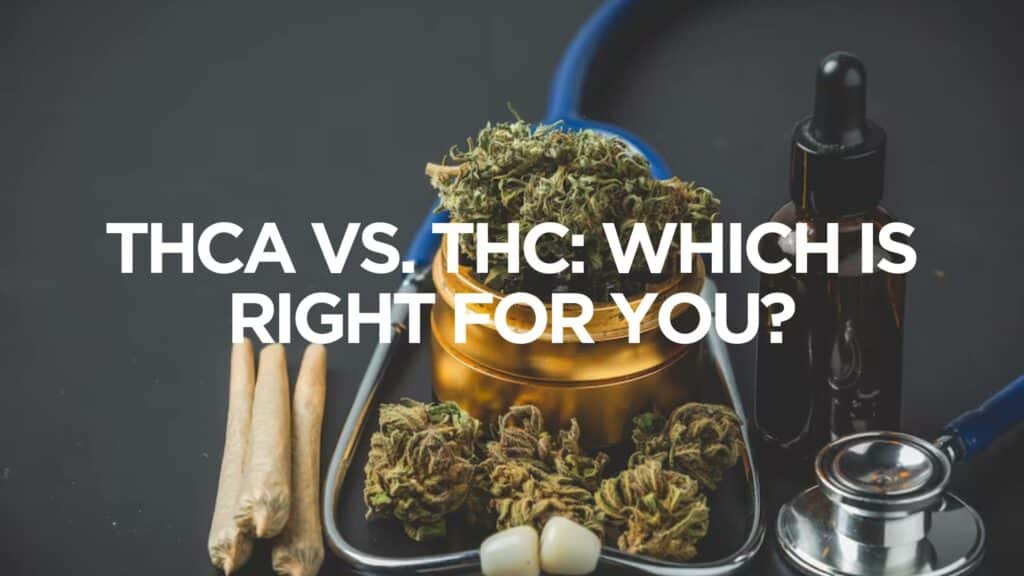If you‘re new to the wonderland of cannabis, it can be a bit confusing to navigate your way with all the different compounds. Two of the most famous ones, which you have probably heard of are THCA and THC. Understanding the difference between these two is essential if you’re curious about the potential benefits and effects of cannabis use.
To begin with, you should know that THCA and THC are closely related. However, they lead to different experiences when you consume them, and they have their own roles when it comes to legality and potential uses.
So why should you care about distinguishing between THCA and THC? Well, it turns out that it matters quite a bit. In an era where cannabis is gaining popularity for various purposes, safety and education are crucial. Knowing the ins and outs of THCA and THC empowers you to make informed choices about cannabis products and how you use them.
In this post, we‘ll explore the world of these two popular compounds, and how they can enhance your experience and well-being. So, if you want to learn everything about THCA and THC, and their differences, keep reading.
THCA and THC: What Are They Exactly?
THCA or Tetrahydrocannabinolic Acid is a naturally occurring compound found in fresh cannabis plants. Unlike its counterpart, THC, THCA is non-psychoactive in its raw form, but it can offer various potential therapeutic benefits.
THC or Tetrahydrocannabinol, on the other hand, is the well-known psychoactive compound in cannabis, responsible for the “high” associated with marijuana use. When heated or decarboxylated, THCA transforms into THC, unlocking its psychoactive effects.
Differences Between THCA and THC
THCA and THC are different in several areas:
Chemical Structure
Both THCA and THC share the same basic components: 21 carbon atoms, 30 hydrogen atoms, and 2 oxygen atoms. However, here’s where the magic happens: THCA has an extra element called a carboxylic acid group, affectionately represented by the “A” in its name. This small but significant detail makes all the difference.
Occurrence in Cannabis Plants
Picture those glistening, resinous trichomes that cover cannabis buds and leaves. Within them, you’ll find THCA. It’s a natural product of the plant’s metabolic processes. A cannabis plant is naturally brimming with THCA, not THC. The transformation from THCA to THC requires heat and time.
Apply some heat, whether it’s from lighting up a joint, vaping, or cooking with cannabis, and you’ll witness a remarkable change. This process is called decarboxylation which removes that extra carboxylic acid group and turns THCA into THC.
Psychoactive Effect
Now, let’s talk about the real kicker of THCA and THC. The big distinction lies in the carboxylic acid group that THCA carries. Unlike THC, THCA doesn’t have what it takes to make you feel high.
Once decarboxylated, THC interacts with the body’s endocannabinoid system, primarily binding to CB1 receptors in the brain and central nervous system. This interaction leads to a range of effects, including euphoria, altered perception, and relaxation, which are hallmarks of cannabis “high.”
Legal Status
The legal status of THCA varies from one jurisdiction to another. In many regions, THCA is considered legal. However, it’s essential to note that specific laws and regulations regarding THCA-rich products may differ, and it’s always advisable to check local regulations.
On the other hand, the legality of THC is often subject to strict regulations in many regions. While it may be legal for medical or recreational use in some places, in others, it remains a controlled substance.
What Are the Benefits of THCA?
If you are looking for a cannabinoid to improve certain medical conditions, THCA is your best option. That is because you can have the therapeutic benefits without experiencing euphoria. Here are the key areas where studies indicate that THCA may offer potential benefits:
Anti-inflammatory Properties
THCA has garnered attention for its potential as an anti-inflammatory agent. THCA has shown promise in reducing inflammation. This property makes it a potential candidate for managing conditions characterized by chronic inflammation, such as arthritis or inflammatory bowel disease. THCA’s anti-inflammatory potential may also provide relief to individuals dealing with pain and discomfort.
Neuroprotective Potential
Emerging research suggests that THCA may hold neuroprotective properties, meaning it could help protect nerve cells in the brain and nervous system from damage or degeneration.
This is particularly intriguing in the context of neurodegenerative conditions like Alzheimer’s disease and Parkinson’s disease. While further studies are needed to fully understand the extent of THCA’s neuroprotective effects, early findings are promising and hint at its potential therapeutic value.
Appetite Stimulation
THCA flower might have an impact on your appetite by working with the endocannabinoid system. This could be beneficial for people facing reduced appetite due to medical treatments or eating disorders.
However, more studies are necessary to fully grasp how THCA affects appetite and confirm its safety for various individuals.
Other potential benefits are:
- Helping with sleep disorders
- Helping with certain tumors and cancers
What Are the Benefits of THC?
THC provides almost the same potential benefits for cannabis users along with a euphoric experience. But for the exact same reason, it does a better job for those under stress.
Pain Relief
One of the most well-known and widely acknowledged benefits of THC is its ability to provide pain relief. THC interacts with the endocannabinoid system, modulating pain perception and providing analgesic effects.
This makes it a valuable tool for individuals dealing with chronic pain conditions, such as neuropathic pain or pain resulting from conditions like cancer. Medical cannabis products containing THC have been prescribed to manage pain effectively, offering relief to patients where conventional medications may fall short.
Antiemetic Properties
Another significant benefit of THC is its antiemetic properties, which means it can help reduce nausea and vomiting. This effect is especially valuable for individuals undergoing chemotherapy or those experiencing nausea due to various medical conditions or treatments.
THC can alleviate these distressing symptoms and improve the overall quality of life for patients dealing with nausea and vomiting, which can be debilitating in some cases.
Other potential benefits include:
- Reducing anxiety and stress
- Enhancing mood
- Increasing appetite
- Improving sleep quality
THCA Potential Side-Effects
While THCA shows promise in various therapeutic applications, it’s essential to remember that research into its potential side effects is still in its early stages.
Some users may report feelings of drowsiness and sleepiness after using THCA-rich products, although these effects tend to be milder than those associated with THC. Similarly, a decrease in appetite and fatigue might also be experienced by some individuals.
It’s important to note that these side effects can vary from person to person, and more research is needed to understand their prevalence and intensity fully.
THC Potential Side-Effects
Just like any substance that interacts with the body’s complex systems, THC use can result in certain unwanted effects. It’s important to be aware of potential reactions and use them responsibly. Here are some potential side effects associated with THC use:
Dry Mouth (Cottonmouth)& Dry Eyes
Another common side effect of THC products is dry eyes, resulting in redness, irritation, and a gritty feeling.
Increased Heart Rate
Some individuals may experience a temporary increase in heart rate after consuming THC.
Dizziness or Lightheadedness
At higher doses, THC may induce dizziness or a lightheaded sensation, affecting balance and coordination.
Changes in Blood Pressure
THC has the potential to cause temporary changes in blood pressure, either elevating or lowering it.
Anxiety or Paranoia
Some users may experience heightened stress or paranoia after THC consumption, especially with high doses.
Impaired Motor Skills
THC can temporarily affect coordination and motor skills, making users feel clumsy or experiencing impaired movement.
Memory Impairment
According to anecdotal reports, using THC may cause short-term memory impairment.
Sedation and Fatigue
While some users find THC relaxing, others may experience sedation and feelings of tiredness.
Gastrointestinal Distress
THC may also cause stomach problems, such as nausea or digestive issues. Note that individual reactions to THC can vary widely, and not everyone will experience these side effects. The possibility and intensity of side effects depend on factors including dosage, frequency of use, individual tolerance, and overall health.
THCA and THC Consumption Methods
Both THC and THCA can be consumed through various methods, each with its unique advantages and considerations. Here are some common ways to use these cannabinoids:
Inhalation
Smoking or vaporizing is the most common method of consuming THC and THCA. Smoking’s rapid onset of effects is one major reason for this method’s popularity and makes it suitable for those seeking immediate relief.
However, it’s worth noting that smoking can be harsh on the lungs and may not be suitable for individuals with respiratory issues. Additionally, when smoking THCA flowers or concentrates, the heat applied during consumption can lead to decarboxylation, converting THCA into psychoactive THC.
Edibles
THC and THCA can be incorporated into food or beverages, such as baked goods, candies, and tinctures. Edibles take longer to take effect, typically 30 minutes to an hour, but the effects can last longer compared to inhalation. It’s essential to dose edibles carefully, as they can be challenging to gauge accurately.
Keep in mind that THCA gummies and capsules, while initially non-psychoactive in their acidic form, may become psychoactive if exposed to heat. If you want to preserve THCA in its acidic form, consume the product raw.
Topicals
For localized relief without psychoactive effects, THCA and THC can be applied topically in the form of creams, balms, and lotions. This method is popular for addressing pain or skin conditions.
Sublingual
You can put some THC or THCA oil under the tongue where they are absorbed through the mucous membranes. This method offers a quick onset of effects and precise dosing. More importantly, THCA consumed in this format remains in its acidic form, eliminating the risk of accidental conversion into THC.
Suppositories
THC and THCA can also be consumed rectally or vaginally using suppositories. Some individuals choose this method for various reasons, such as difficulties with oral or inhalation consumption. Suppositories may provide quicker effects to specific areas and potentially result in longer-lasting effects.
How to Buy THCA Safely?
When it comes to getting THCA, there are some simple steps to help you find safe and quality products:
Find Trusted Sellers
Start by looking for reputable vendors and dispensaries. You can check online reviews, ask friends for recommendations, or rely on customer feedback to identify trustworthy sources.
Check the Vendor
Take a closer look at the vendor’s reputation, customer service history, and where they source their products. This will help you feel more confident in your choice and ensure a positive buying experience.
Understand Product Labels
Make sure you understand the labels on THCA flower products. Look for important information like THC and THCA content, details about the strain, how it was grown, and how the THCA was extracted. Knowing this stuff helps you make choices that suit your preferences and encourages transparency in the industry.
Decide How to Buy
Think about whether you want to buy online or in a physical store. Online shopping is convenient and offers lots of options, while in-person shopping lets you get advice from knowledgeable staff and see the products up close. Choose the method that works best for you.
Payment and Shipping Details
It’s important to understand how payments work with different vendors, including what methods they accept. Also, find out about their shipping policies, delivery times, how they package the product, and if they offer tracking options. This ensures your THCA flower gets to you safely and efficiently.
By following these straightforward tips, you can explore THCA flowers with confidence and make choices that fit your needs and lifestyle.
Harbor City Hemp THCA Products
Harbor City Hemp is a trusted and well-established option for purchasing THCA products. Known for our unwavering commitment to excellence, safety, and meeting our customers’ needs, we are the dependable supplier you’ve been seeking.
At Harbor City Hemp, we aim to ensure that high-quality products are accessible to everyone. To achieve this goal, we are excited to introduce the Harbor City Hemp Discount Program. This program offers exclusive discounts, with savings of up to 30%, to individuals with disabilities, those with limited incomes, and veterans.
Now, let’s explore some of our products together:
THCA Diamonds
Our THCA Diamonds are the epitome of purity and potency in THCA concentrates. With a staggering THCA concentration exceeding 99%, these diamonds are designed for seasoned cannabis enthusiasts seeking a truly intense and enduring experience.
Crafted through a meticulous process, we isolate and purify THCA crystals, resulting in a pristine, crystalline substance of unparalleled purity. THCA Diamonds offer versatility in consumption, making them perfect for dabbing or enhancing your joint.
What sets our THCA Diamonds apart is not only their high THCA content but also their exceptionally smooth flavor profile. Expect a clean, unadulterated taste that complements the robust potency. Rest assured, our THCA Diamonds undergo rigorous lab testing to ensure both potency and quality, meeting the highest standards.
It’s important to note that this product maintains a total Delta-9 THC concentration that remains below 0.3% on a dry weight basis, making it compliant with legal regulations.

White Bubblegum Gelato THCA Flower (Indoor)
Harbor City Hemp White Bubblegum Gelato THCA Flower (Indoor), also known as BG Gelato, is a captivating hybrid cannabis strain that leans toward the indica side. Crafted by combining the renowned Gelato #45 with the enigmatic Indiana Bubblegum, this exceptional strain offers an exciting and well-balanced experience.
What truly sets this strain apart is its remarkable THCA content, boasting an impressive 33.1%. For cannabis enthusiasts seeking potent and high-quality options, White Bubblegum Gelato is an excellent choice.
Users of this strain have reported experiencing a sense of relaxation, an uplifting mood, and an increased appetite, making it suitable for various occasions.
With a delightful flavor profile, White Bubblegum Gelato presents a sweet cherry taste complemented by earthy undertones. This is sure to offer a memorable and pleasurable cannabis experience.

Final Words
Grasping the disparities between THCA and THC is paramount for both medical and recreational cannabis users. In this guide, we’ve highlighted their key differences and why they matter.
Equipped with this information, you can leverage THCA’s therapeutic potential or tailor your high experiences for relaxation, euphoria, or creativity. Distinguishing between THCA and THC allows you to unlock the diverse potential of cannabis, ensuring your cannabis journey is both enjoyable and personally fulfilling.
THCA Vs. THC FAQs
What Is the Main Difference Between THCA and THC?
The primary distinction lies in their psychoactivity. THCA is non-psychoactive, whereas THC is responsible for the u0022highu0022 associated with cannabis.
Are there any Potential Benefits to Consuming THCA?
THCA shows promise in offering anti-inflammatory and neuroprotective properties, but more research is needed to fully understand its medical potential.
How Can I Consume THCA or THC Safely and Effectively?
Both THCA and THC can be consumed through various methods, such as smoking, vaping, edibles, and tinctures. Understanding your desired effects and proper dosing is essential for safe and effective consumption.
Is THCA Legal, and How Does it Differ from THC in Terms of Legality?
THCA is typically legal because it’s non-psychoactive and the naturally occurring form found in raw cannabis. On the other hand, THC’s legality varies by jurisdiction and may be subject to restrictions due to its psychoactive nature. Thus, it‘s best to check your local laws and regulations before purchasing cannabis products.




